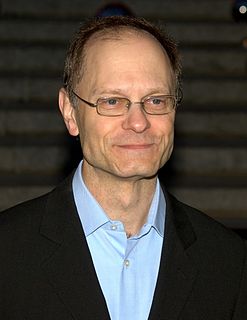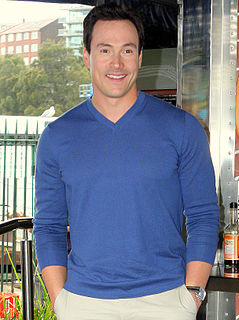A Quote by Brian K. Vaughan
I sort of jumped out of movies and into the lifeboat of comics. I loved it right away. It was the opposite of film school. Whatever was in my imagination could end up in the finished product. There were just no limitations.
Related Quotes
I lived right on the borderline of a black neighborhood. So I could go into the black area and then there'd be these ghetto theaters that you could actually see the new kung fu movie or the new blaxploitation movie or the new horror film or whatever. And then there was also, if you went just a little further away, there was actually a little art house cinema. So I could actually see, you know, French movies or Italian movies, when they came out.
The films that I loved growing up were the science fiction films from the late seventies and early eighties [films], which were more about the people and how they are affected by the environments that they are in. Whether they are sort of futuristic or alien of whatever they are; that was the science fiction that I loved. So that is what we tried to make, the sort of film that felt like those old films.
When recording, whatever you first think about, you come out with something totally different at the end of it. Whatever plans you have you throw away, because it's always going to end up sounding pretty different from what you initially thought of. I probably only had about five or six songs when I started, and it just sort of flowed from that.
The movie that we could've finished in 2001 would've sucked. The movie that we could've finished in 2002 would've just been a disaster, even into 2003, it would've been very cobbled together, amateuristic stuff. But as we went along, we really did stumble upon some accidental themes, and with the things you could do with computers, and all that sort of stuff just sort of really accelerated into where the stuff that we could do right here at my house became - you could almost do anything.
I've always loved movies but everyone loves movies, so I never conceived of the fact that I could actually be in them. In high school I had some friends in the drama department, but they were just doing plays, and I was like, "Eh, I don't really think that that's me." So I just played sports. Then, a bunch of years later, I'm acting.
Whatever experimental film aromas cloaked my movies were because I'm a gleefully clumsy, primitive filmmaker. I really like traditional pleasingly narrative films, but I also just couldn't resist throwing in the disruptive. It seems to me that art-house film is at its glorious zenith right now, maybe it can even get better? There's just so many good films, you know Cemetery Of Splendour, Arabian Nights, Miguel Gomes, just so much great work coming out.
Everything that goes into making a film, when it's the finished product, us as the actors look at the film and go: "Oh man, OK, on that day we were doing whatever the circumstances were on that day...." So much goes into it and it's all so incredibly calculated that the behind-the-scenes chemistry that exists between all of us is sometimes forgotten - you can't act that. We've all come together and held hands through each of the processes that I've been a part of.





































